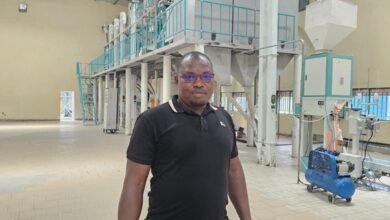Rwanda: 5 key strategies to make the country a financial hub
Determined to develop Rwanda’s financial center, the country’s authorities have pulled several levers to make this ambition a reality. Focus on the five winning strategies.
By Ange Iliza, in Kigali
Announced in early November by the Kigali International Financial Center (KIFC), the launch of the Virunga Africa Fund – a $250 million investment vehicle focused on impact investing and jointly endowed by the Qatar Investment Authority and the Rwanda Social Security Board – is the latest manifestation of the Land of a Thousand Hills’ will to become a major financial center. This is despite the Covid-19 crisis, which has affected businesses and the movement of people and goods. However, the recent decline in the number of infections and the success of vaccination campaigns in the country have contributed to the recovery of the economy, which is now returning to normal. This has strengthened the determination of the authorities to continue their efforts to make the country a financial hub. Focus on the 5 strategies deployed by Rwanda to achieve this ambition.
A conquering airline to connect the country to the rest of the world
Despite losses due to the cessation of operations during the Covid-19 pandemic, RwandaAir has continued to expand its wings to new destinations over the past two years, the latest being Goma and Lubumbashi in the neighboring Democratic Republic of Congo. This increase in route openings reflects the Rwandan authorities’ desire to use the company as a lever to attract businessmen and international investors. But with an eye nevertheless on the costs involved. In May of this year, RwandAir announced its intention to focus on regional routes in order to optimize its operational costs, with the company’s general manager, Yolande Makolo, reminding us that in order to « minimize the airline’s operational costs, […] it was necessary to « focus on routes in Africa ».
Opening Rwanda’s doors wide to foreigners
By exempting, since March 2020, from visa fees the nationals of the member states of the Commonwealth, the International Organization of the Francophonie (OIF) and the African Union, Rwanda has skilfully played the card of African integration and economic pragmatism, which increases its attractiveness to investors and new businesses. In detail, this very flexible visa policy concerns more than ninety member states of the above-mentioned organizations and this for a stay of up to 30 days. Citizens of the East African Community (in addition to Rwanda, Burundi, Kenya, Uganda, South Sudan and Tanzania), who also pay no entry visa fees when traveling to Rwanda, are issued an entry visa for up to six months.
Betting on business tourism and international sports
In May 2020, the pandemic prompted the Rwanda Convention Bureau – the government institution in charge of managing the country’s major meetings and conferences (known as MICE) – to cancel or postpone 80 per cent of planned events, including the Commonwealth Heads of Government Meeting, which was expected to bring together more than 250,000 delegates from around the world. Since then, as the pandemic has subsided, the Land of a Thousand Hills has successfully resumed its strategy of hosting major international conferences and sporting events. The second EU-AU ministerial meeting recently brought together more than 60 ministers from Africa and Europe at the Kigali Convention Centre, while several sporting events, such as the African Basketball League and the 2021 African Volleyball Championship, were held at the Kigali Arena, the largest sports complex in the region. This has raised Rwanda’s profile in the world of entertainment and sports.
Fostering an inclusive and environmentally friendly economy
Very committed to issues related to inclusion, the Rwandan government has imposed since 2019 the establishment of public buses accessible to people with disabilities while working on the accessibility and usability of public places for this category of population. People with disabilities are also systematically represented in schools, companies and public posts. In this way, the Rwandan economy as a whole is becoming more inclusive in a post-Covid context. But also greener. Electric motorcycles, vans and bicycles are becoming more and more a normal means of transportation in Kigali, as the government has removed taxes on eco-friendly devices and cars, and equipped the capital with five charging stations in less than a year. Finally, to preserve its environment as much as possible, the country announced in November that it would allocate 37% of its territory (26,000 km2) to conservation activities. This is a considerable effort for a small, densely populated country (nearly 500 inhabitants/km2).
Promoting political cooperation and peacekeeping
Since 2005, Rwanda has consistently participated in UN peacekeeping missions and bilateral missions in Africa and beyond. This is a way to establish its stature as a peaceful and responsible African power. Recently, at the request of Mozambican President Filipe Nyusi, Rwandan troops helped restore peace in the western part of this southern African country, which was plagued by Islamist insurgents. Thousands of people who had been driven from their homes were able to return. Mozambique joins South Sudan, the Central African Republic and Haiti. Rwanda’s peacekeeping missions not only promote pan-African cooperation and solidarity, they also build confidence and prove the country’s stability to businesses and investors. Better still, despite the difficulties and challenges born of its dark contemporary history, Rwanda has taken the gamble of playing constructive appeasement in its international relations, for example with France, the Democratic Republic of Congo and Burundi. There is nothing better to ensure a safe and prosperous environment for business and investment.






